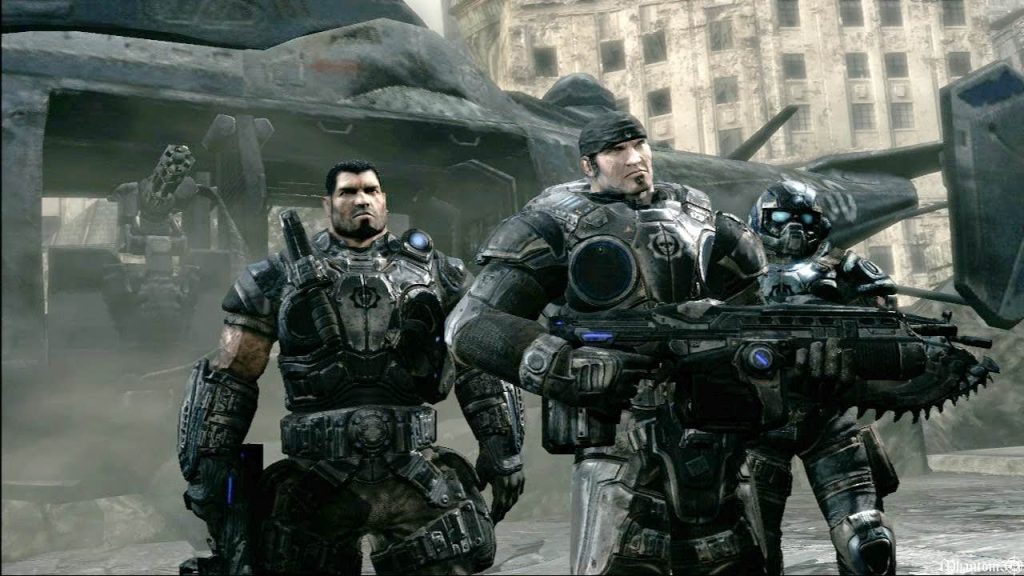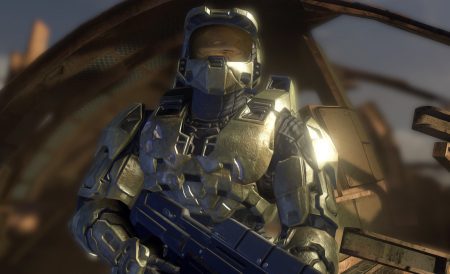Spoilers ahead for the first three Gears of War games.
“Mad World.” For anyone who came up in the Xbox 360 era, those words mean everything. They’re the two words that changed the way we look at video game trailers, the words that helped change the balance of power for at least that console generation. But for me, “Mad World” signified a change in how I viewed long-form storytelling in games. They’re the words that introduced me to the Gears of War trilogy and what I believe to be one of the greatest end-to-end narratives in gaming.
The Gears of War series, like many great entertainment franchises, is at its core about family. Star Wars, Harry Potter, Lord of the Rings (in a global “we’re all in this together” sense), and, of course, the Fast and Furious franchise all center around the concept of family, whether purely familial or chosen. When it comes to the importance of a found family, the first three Gears of War games focus particularly on the relationship between Marcus Fenix and the members of Delta Squad. The strongest friendship that exists for Marcus among those squadmates is with Dominic Santiago, a character who is the closest Marcus has to a brother, and whose friendship matters to him as much as all of humanity does.
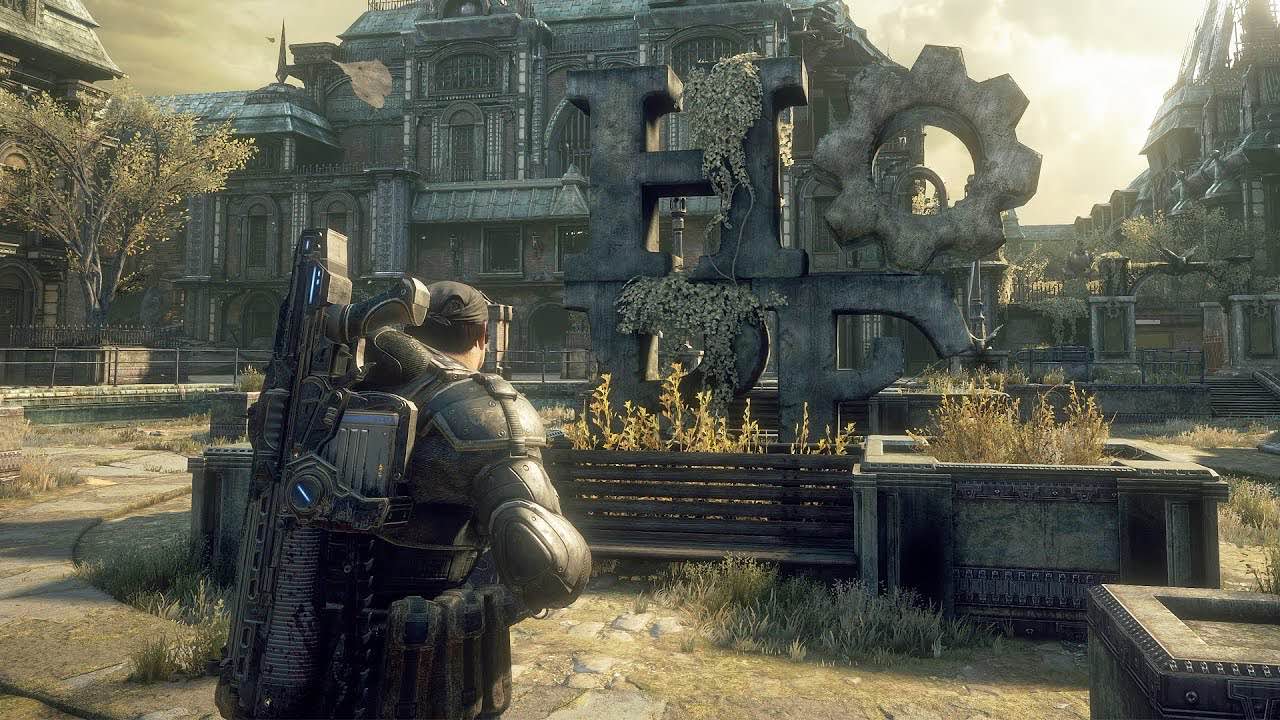
The Start of Something Special
The first game opens with Marcus in prison in the middle of the Locust War, 14 years after what is known as Emergence Day, when the Locust Horde pushed through the surface of the planet Sera and began an all-out assault on its people. These humanoid monsters took over the planet and destroyed nearly everything. In response, the Coalition of Ordered Governments, or “COG,” ordered air strikes with an orbital weapon known as the Hammer of Dawn. This countermeasure essentially made it close to impossible for humans to continue to live normal lives and only temporarily pushed back the Locust.
With the citizens of Sera pushed to the brink of extinction, the COG is desperate for able bodies, and Dominic knows where to find one. Dominic frees Marcus from his prison cell, and this begins a chain of events that eventually results in Marcus becoming the leader of Delta Squad (which also includes Augustus “Cole Train” Cole and Damon Baird).
Throughout the game, all four men do what soldiers do: Shoot things, crack jokes, and get occasionally pissed off at each other. It’s the writing of the banter between fights and the cutscenes that really drive home not just the nature of the war but the nature of the men in it. Central to that is the story of Marcus, who ended up in prison because he attempted to save his father during a major battle against the Locust, disobeying orders in the process. Dominic, on the other hand, is still searching for his wife Maria, who has been missing for years.
These particular story threads provide much of the emotional heart of the series and inform a great deal of how Marcus and Dominic interact in later games. The interpersonal relationships are not the only aspect of the story reflected here, as there’s also a significant feeling of dread and despair everywhere these men go. Most other humans are enslaved, stranded, or cursed to a life of servitude to the COG, purely out of a need to survive. Sera feels like a war-torn planet with its denizens at their breaking point, and the Locust Horde knows it.
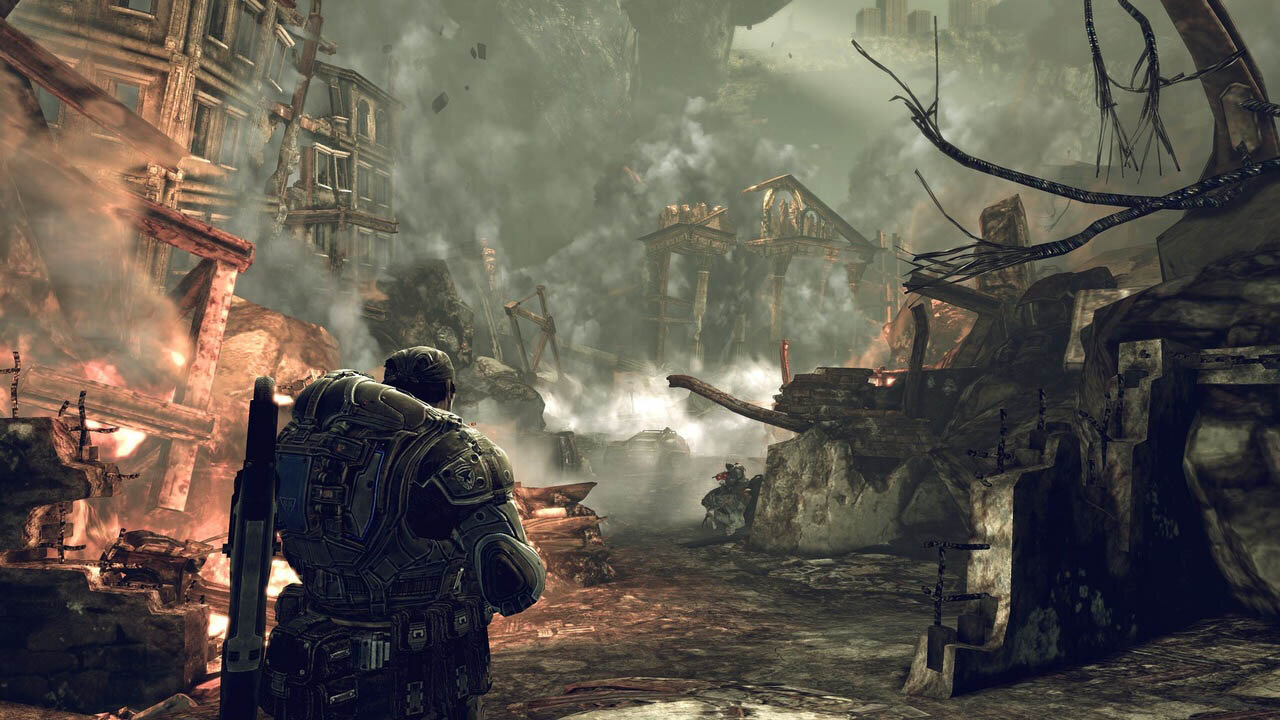
Taking The Fight To Them
This feeling extends to the second game, where the COG decides to take the fight to the Locust in The Hollow, the Locust stronghold hidden underground. From the opening moments of the game when you’re riding COG vehicles known as Assault Derricks to the drop location, everything feels like an all-out offensive and an attempt to take back some momentum in the fight for survival. Because of the environmental storytelling in this opening, the resulting fights underground evoke a feeling of determination in the face of insurmountable odds.
Dom has been fighting to this point to save his wife from the Locust and finally finds out where she is. Upon reaching her, at first he sees the beautiful woman he married, but Marcus soon snaps him back to reality, revealing a tortured husk of a human. Dom does the only thing he can by putting her out of her misery, at which point Marcus briefly leaves him alone to mourn.
The next part of the story, while a very small moment, hammers home what the story is about. Dom returns, and Marcus asks him, straight up, if he wants to go in quiet or take the fight to the Locust. No other words are spoken. The two simply gesture to one another as if to say, “If you’re riding out, I’m riding out with you.” I have always chosen to go in guns blazing on every repeat playthrough, as it just feels right given the nature of their friendship.
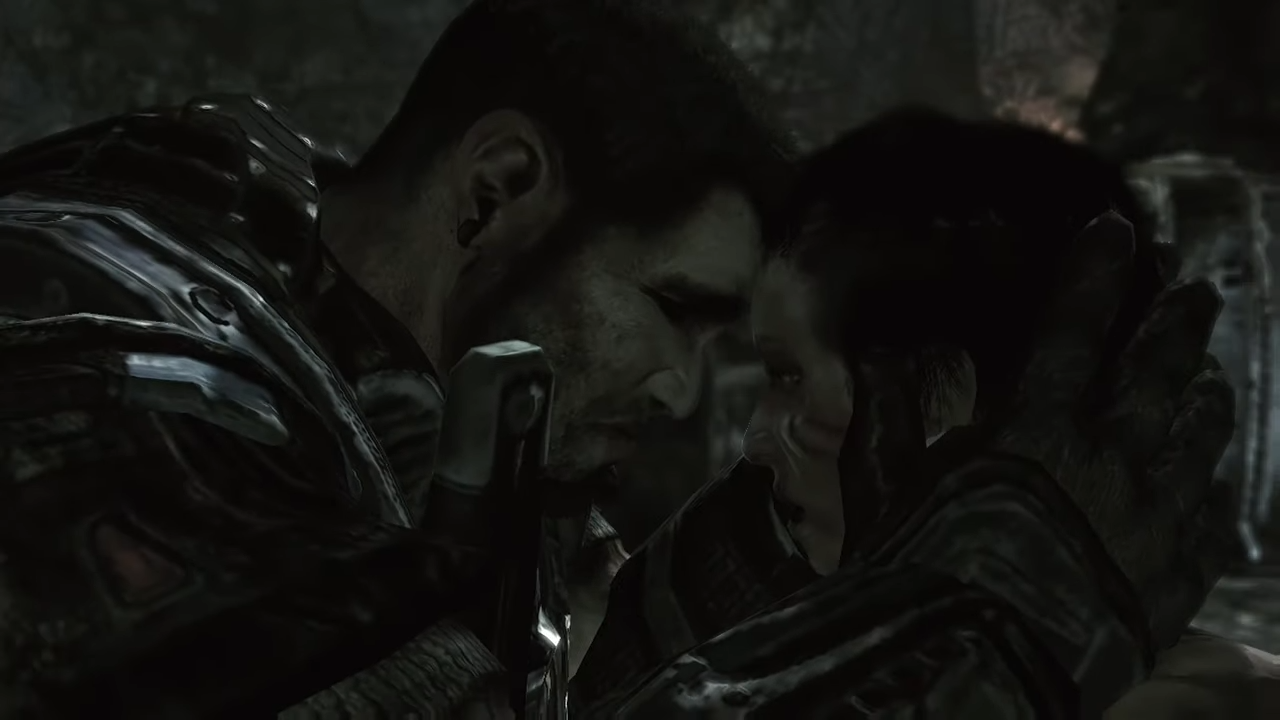
Other members of the COG even have their moments, as the seemingly indestructible Tai Kaliso has one of the more gut-wrenching deaths in the franchise. We go from seeing him survive a near-fatal crash and explosion to being captured, tortured, and driven to take his own life. Even the strongest of us have a breaking point, and in war, you find out exactly what that breaking point is.
Even the marketing for the game played up the relationship between the two. From Gears of War 2 onward, the major trailers for the game always feature Marcus and Dom together in some capacity. This leads to what is actually my favorite trailer in the series, “Ashes to Ashes” for Gears of War 3. I described it in detail in my Spider-Man 2 piece, but this trailer essentially boils the series down to the brotherhood between the two characters: Dom having lost everything and ready to give up, and Marcus as his brother being there to pick him up, as always.

Brothers to the End
Gears of War 3 is truly where the emotional weight of the series hits hardest. As the humans are finally able to find a way to fight back and end the war once and for all, the ramifications of this long-fought war are seen and felt in many ways. Whether it’s walking through the Hammer-struck town of Char and avoiding the ashen remains of its former citizens, or the eventual sacrifice of Dom as he recognizes no way out for Delta Squad and nothing to live for on his end, the game heavily leans on the storytelling throughout the series to land gut punch after gut punch.
Even Marcus’ story gets tied up emotionally after he finds out not only that his father Adam is alive, but that he has been working on a device that would destroy the Locust. Unfortunately, this comes at great cost, as the only way to be sure it would work was for his father to test it by injecting himself with Lambent cells, resulting in his death once the machine is activated. In just this one game, Marcus has lost his brother and his father but won the war, leaving him wondering what’s even left to put back together after all of this.
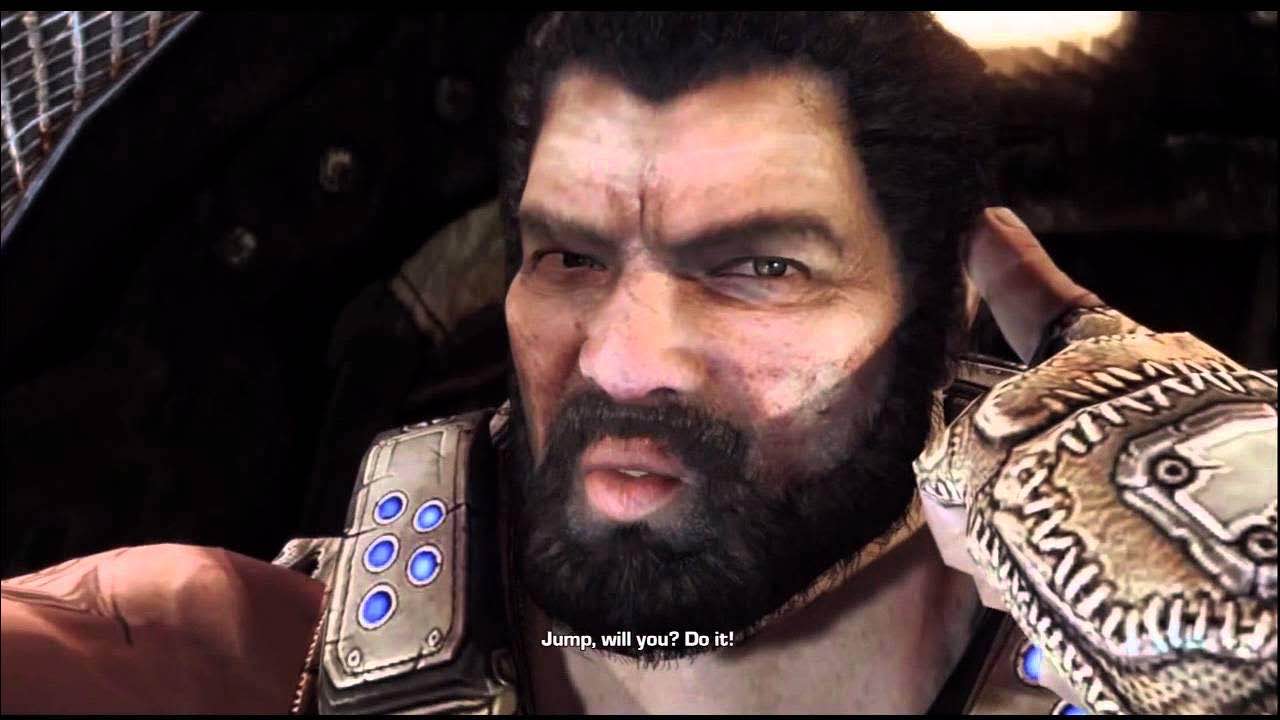
What You See Isn’t All You Get
What sticks out to me when going back over the narrative of these games is that some of the reactions to the story dismissed the characters as meatheads and pointed out how straightforward the dialogue could be. If anything, those characteristics add to the heavier moments. This isn’t a nuanced situation Delta company is in; it’s a war. All that surrounds them are military tactics, fear, and survival. Sophisticated interactions between the characters would be as unrealistic as it gets.
This series is one of the earliest memories I have of a group of stereotypically macho male characters in a game showing genuine emotion toward each other while still holding on to that gruff, take-no-crap attitude. I’ve always been partial to strong showings of brotherhood in gaming, and the Gears of War trilogy is no exception. So yes, these characters are meatheads, because that’s the era of gaming they existed in. But the writing and voice acting are what flesh them out and make them men and brothers in arms.
The ability to present hopelessness and determination in the face of it with characters as strong and bullish as Delta Squad is the greatest strength of this writing team. At almost every turn in this series, it feels like victory is further and further away, even after progress is made. There are real moments of despair and fear for the characters, yet they stick with each other through every speedbump.
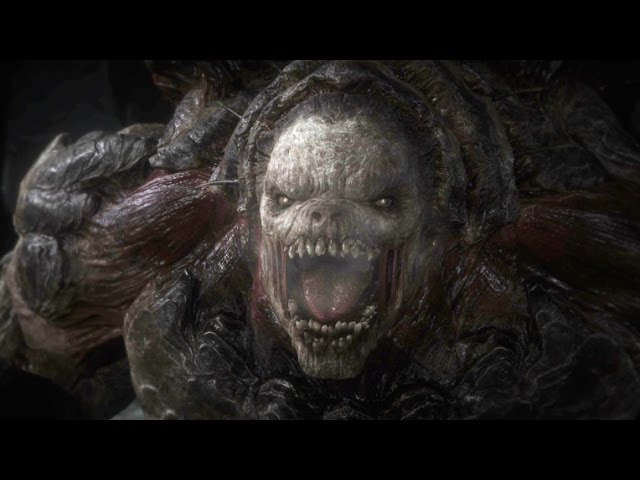
The Berserker sequence in the first Gears of War is one of the best examples of the squad’s uphill battles against despair. Delta Squad sought shelter inside a building for refuge after watching their Lieutenant get killed, only to face an enemy that could sense even the slightest sound and turn them into a fine red mist without any effort, resulting in one of the more tense scenes in gaming. You’ve been finding ways to tear through the Locust up to this point, and the sheer size and attitude of your characters provide a certain level of security. Right then and there, though, that security is ripped away by this humongous, blind creature trapping you in close quarters. That’s storytelling through character design and environmental storytelling, done perfectly.
It’s the moments of vulnerability throughout the series, whether through the Berserker and other large enemies or sequences of quiet and darkness in enemy territory, that drive home what the devs were going for and why they could be as direct with the dialogue as they were. It’s like watching a great Offensive Coordinator call a football game. They have almost a sixth sense for calling the right play at the right moment and making the opposing Defensive Coordinator look like a fool. Here, the devs do such a great job of giving you power and projecting that power but subtly peeling it away to show the frailty underneath. It’s masterful work, through and through.
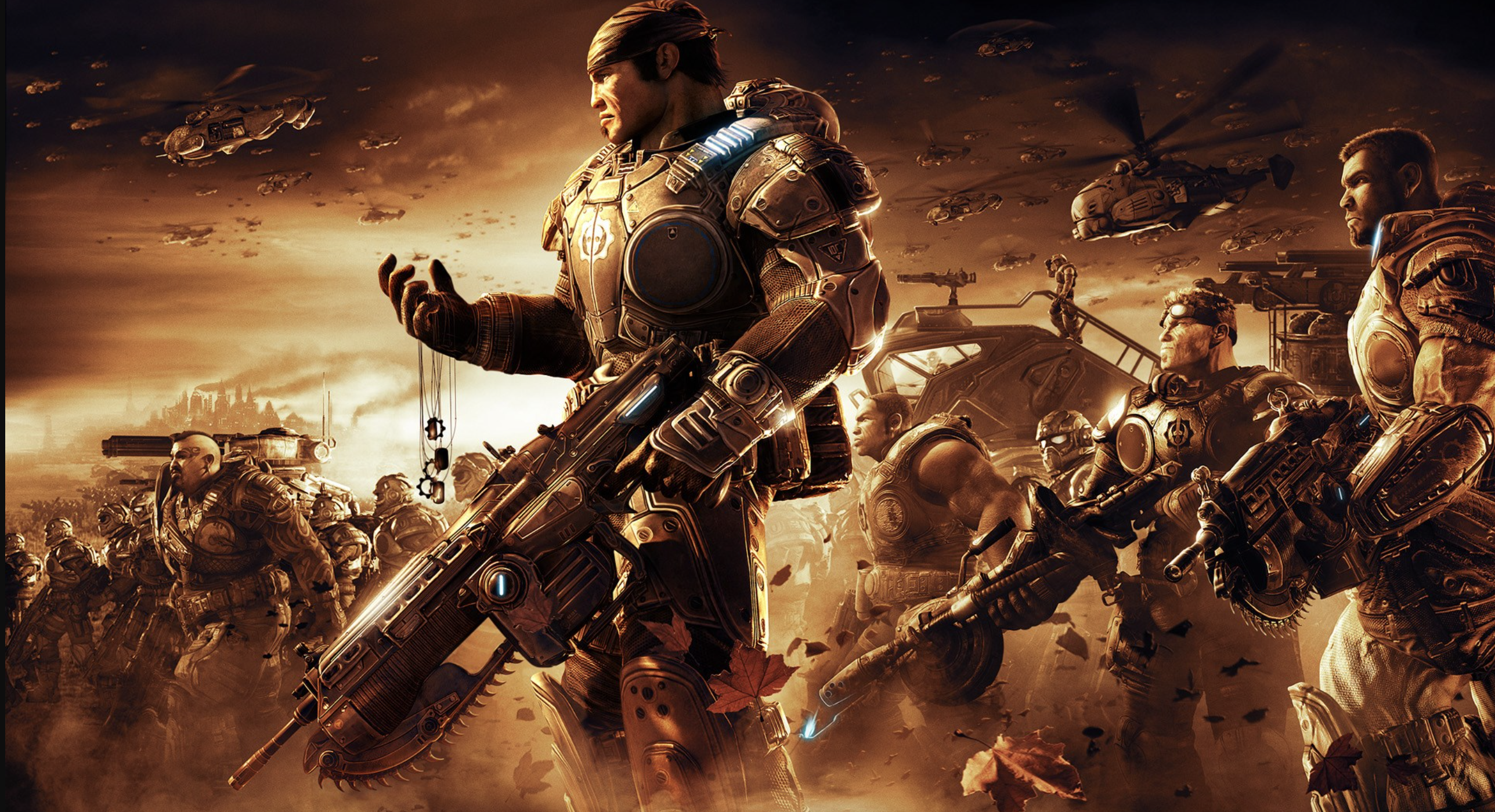
Final Thoughts
I’ve long held the belief that Cliff Bleszinski and company didn’t get enough credit for the world, lore, and characters they created with this series. Gears of War has a truly incredible backstory, and it’s the writing and environmental storytelling in these three games that make you want to learn more about the world.
I treat these games the same way I watch the Lord of the Rings movies: I always make an effort to play through them once a year. If you haven’t experienced the trilogy in some time, the recent announcement of Gears of War: E-Day is as good a reason as any. Take the fight to the Locust one more time, and this time, lock in on the story. You might be surprised by how it makes you feel.
Anthony is a huge Zelda fan, and a bigger Eagles and AEW fan. He's been gaming for 28 years and has no intention of stopping. Ocarina of Time is his personal GOAT. When he's not playing games, you can catch him talking about sports and wrestling.


